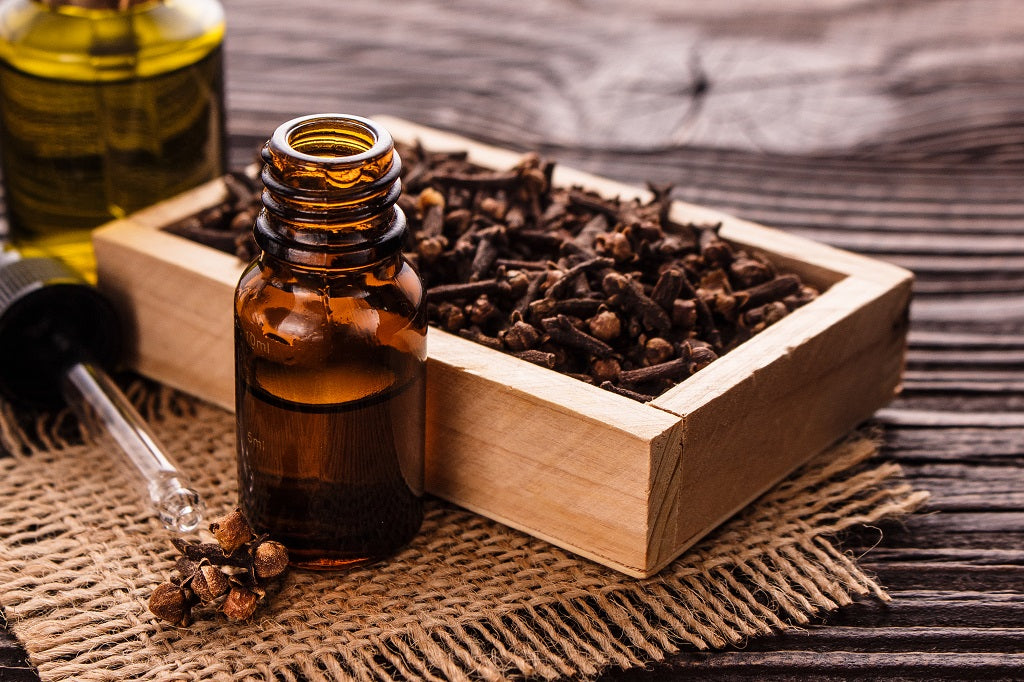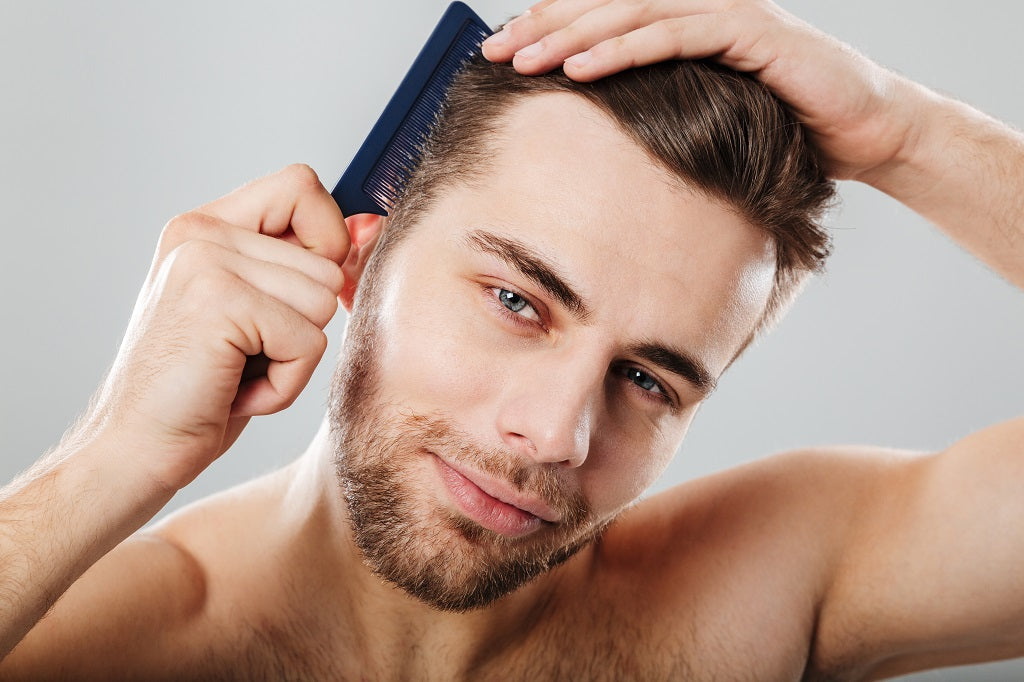Is your hair looking flat, and your dry shampoo seems to have lost its magic? We feel you, girl! Most of us experience a limpness in our hair the moment winter arrives, which becomes difficult to manage as the hair loses its volume. And, truth be told, who likes to flaunt flat hair with stylish winter outfits. While we are all for hacks, it's important to take some time and investigate the reason behind your hair becoming super oily. This way, you will be able to combat the root cause and not rely on styling products to give your hair that much-needed oomph this winter.
Also Read : Are Winter Hair Problems Real?
How Does Winter Affect Your Hair?
Winter weather can be harsh on your hair, and most affected are the people with fine hair. The dry wind outdoors can make your scalp too dry, causing your scalp to produce more oil, which results in greasy hair. No one likes to wash their hair daily in winters, and therefore have to deal with greasy hair that looks very flat. We will discuss ways in which the hair can look clean and full in between washes. DIY hacks and volume-increasing products that can combat this problem will also be discussed in this blog.
Why Your Hair Is Often Oily During Winters
The cold wind robs your hair of its natural oil, making it extremely dry and more prone to breakage. To combat dryness, your scalp secretes more oil, so if you do not wash your hair regularly, then dirt, dust accumulate on the oily scalp making your hair look greasy. The use of hoodies in winter, together with room heaters, can make your scalp sweat more, thus stimulating oil production, which leads to an oily scalp and oily hair. This eventually weighs the hair down, making it look flat.
Expert Recommended Tips To Give A Clean And Full Look To Your Hair In Between Washes
- Ensure that you wash your hair at regular intervals, but do not forget that over-washing can dry out your hair. Irregular hair wash can cause the accumulation of dirt, oil, and dead skin on your scalp.
- Avoid touching your hair frequently as you may end up transferring dirt from your hand to your hair.
- Wearing tight bandanas often is not recommended. Be sure to wash them regularly if you do.
- Excessive use of styling products is not recommended.
- Maintain proper hygiene by using clean combs and washing pillowcases.
- If you have an extremely greasy scalp and feel that your regular shampoo is not doing the job, switch to a clarifying shampoo specifically designed for oily hair. Your regular shampoo has a pH range of 4.4 - 6.8, but if your scalp is oily, you may need a shampoo with a higher pH.
- Use the conditioner only at the tip to avoid greasy hair and oily scalp.
- Wash your hair with a mild shampoo twice a week to eliminate oil, dirt, and dust accumulated on the scalp.
- Apply baby powder to your scalp to avoid greasy hair between your hair wash days. Sprinkle baby powder on the roots on the hair before going to bed to allow the powder to set overnight, and the next morning you wake up with a fresh, dry look.
- A hot oil massage followed by washing your hair with a gentle shampoo is also beneficial in preventing oily scalp. It is also helpful for dandruff.
- When selecting the best shampoo for oily hair, check the list of ingredients on the label and look for ingredients such as salicylic acid, ketoconazole, and selenium sulphide, which targets the fungus associated with dandruff, thereby eliminating oiliness of the scalp.
- Brush your hair regularly to allow even distribution of the natural oil on the scalp. But remember that over-brushing can trigger excess oil production by the scalp.
- While choosing a shampoo for oily hair, look for natural ingredients such as
- Tea Tree Oil - Tea tree oil exhibits antibacterial and anti-fungal properties due to which it is effective in treating dandruff. It controls excess sebum production, thus eliminating greasy scalp.
- Chamomile - Chamomile extracts are gentle on your scalp and add strength to hair, so find products that contain chamomile extracts.
- Green Tea - Green tea extract effectively controls sebum production and plays a vital role in controlling the oil balance of your scalp.
Also Read : Green Tea Extract- A Magic Potion For Hair
- Acai Berries - Acai berries are considered to be the powerhouse of essential nutrients required for the growth of healthy and well-nourished hair. It is loaded with the goodness of vitamins such as Vitamin A, B, C, E and folic acid.
Follow these expert tips for healthy, well-nourished, clean and thick hair this winter by eliminating greasy hair and oily scalp.
DIY For Eliminating Oily Hair
It can be a meticulous task to manage oily hair, especially when it comes to styling. Excessive sebum production makes your scalp greasy, weighing down your hair and making your hair look thin. Try these effective home remedies to get rid of oily hair:
1. Aloe Vera
A natural conditioner using aloe vera gel to fight oily scalp. Take 2 tablespoons of aloe vera gel and to this add 1 tablespoon of lemon juice and 1 tablespoon of apple cider vinegar. Mix it well and your natural conditioner is ready for application.
Also Read : Benefits of Aloe Vera For Healthy Hair with 15 Home Remedies
2. Black Tea
Take 1 cup of water and boil it. To this add 2 tablespoons of black tea and let it cool. Strain it and let it remain for 15-20 minutes. Rinse off with lukewarm.
3. Apple Cider Vinegar
Wash your hair with a mild shampoo. Then take 1 cup of water and to this add 3 tablespoons of apple cider vinegar. Mix well and rinse your hair with this mixture. Let it remain for a few minutes and wash off with cold water.
4. Lavender Oil And Rosemary Essential Oil
Take 3 drops each of lavender oil and rosemary oil. Mix it with coconut oil or olive oil and apply it all over your scalp. Let it remain overnight and wash off in the morning. Repeat this procedure twice a week for stimulating hair growth, controlling sebum production and controlling dry itchy scalp. Essential oils are excellent for treating scalp issues, try them and thank us later!
This winter you can say goodbye to the greasy scalp by following these expert-recommended tips and tricks.
Disclaimer: All the content on anveya.com/blogs is solely for information. It is not intended to be a substitute for professional medical advice, diagnosis or treatment. Always seek the advice of your physician or a qualified health care provider. The information, suggestion or remedies mentioned on this site are provided without warranty of any kind, whether express or implied.



